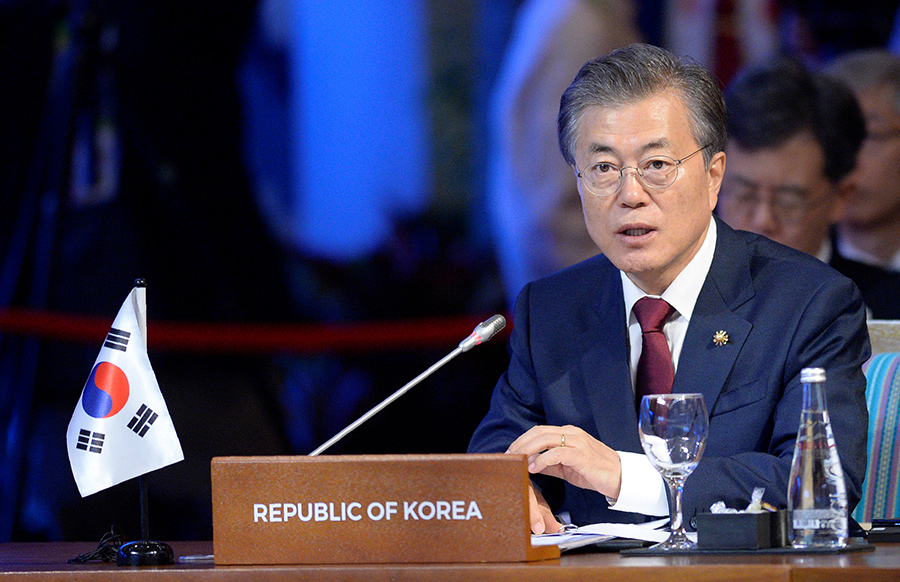S. Korean president says wartime sex slavery issue can't be resolved by 2015 deal
Xinhua | Updated: 2017-12-28 14:44

SEOUL -- South Korean President Moon Jae-in said Thursday that the wartime sexual slavery issue cannot be resolved by a 2015 deal with Japan.
Moon said though the deal was an official promise approved by the leaders of both countries, he, as the president of South Korea, should make it clear again that the comfort women issue cannot be resolved by the 2015 deal.
The South Korean leader said he felt a heavy heart when he was briefed on the review report over the 2015 deal, presidential spokesman Park Soo-hyun told a press briefing.
Moon's comments came a day after Seoul's foreign ministry confirmed a secret deal in the 2015 agreement between the then South Korean government under ousted President Park Geun-hye and the Japanese government led by Prime Minister Shinzo Abe.
The Park government reached a "final and irreversible" agreement with Japan over South Korean victims, who were forced into sexual servitude for Japanese military brothels during World War II.
Under the deal reached on Dec 28, 2015, Japan agreed to offer 1 billion yen (9 million US dollars) to a foundation dedicated to supporting the South Korean sex slavery victims in return for the final and irreversible agreement.
President Moon, who took office in May, ordered a review over how the 2015 deal was reached and whether there was any procedural fault, saying the 2015 deal was not "emotionally" acceptable to South Koreans.
The task force team under Foreign Minister Kang Kyung-wha released the review results Wednesday, saying secret agreements were found in the 2015 deal.
According to the 31-page report, Japan demanded South Korea persuade advocacy groups supporting the sex slavery victims to accept the 2015 deal. Then South Korean government vowed to make efforts to prod the groups into actually accepting Japan's demand.
Behind the scenes, Japan demanded South Korea not use the word "sex slave," and the South Korean side replied that it only used the word "comfort women" in the past, actually accepting Japan's demand, according to the report.
























